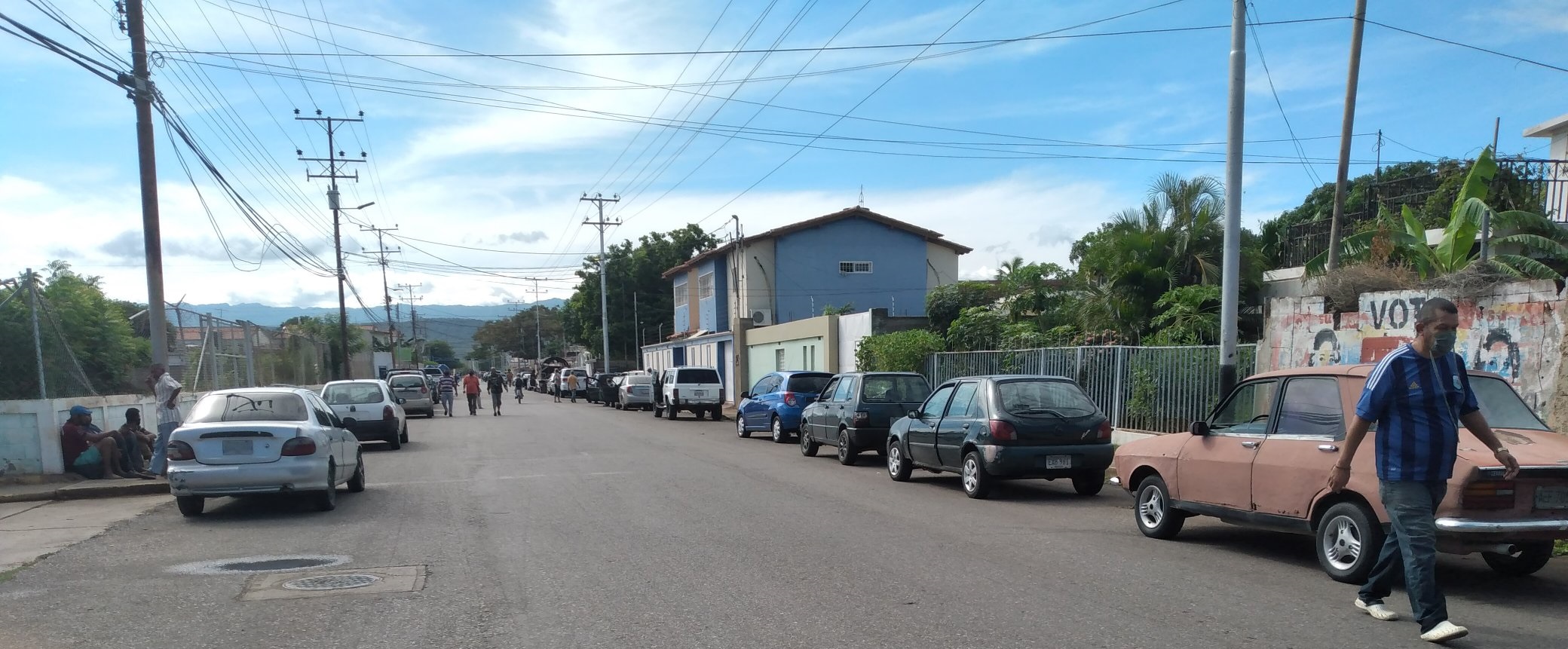
(Argus, 20.Jan.2021) — The new US administration is considering whether to reinstate Venezuelan crude-for-diesel swaps and ease a key sanctions waiver, but policy reversals alone would not be enough to meaningfully revive the Opec country’s oil production after years of neglect.
At his senate confirmation hearing yesterday, secretary of state nominee Tony Blinken said the administration broadly backs the policy of pressuring Caracas to hold new elections, but “I believe there’s more that we need to try to do in terms of humanitarian assistance, given the tremendous suffering of the Venezuelan people.”
That humanitarian bent is partly driving President Joe Biden’s administration to weigh whether non-US companies can resume the diesel swaps, and whether to restore less restrictive waiver conditions on US companies with Venezuelan assets, industry officials tell Argus.
The steps would aim to alleviate Venezuelan suffering without altering the sanctions framework designed to oust President Nicolas Maduro, a goal the “maximum pressure” campaign of Biden’s predecessor, Donald Trump, never achieved.
After the US imposed oil sanctions on Venezuela in January 2019, Spain’s Repsol, Italy’s Eni and India’s Reliance engaged in diesel transactions with Venezuela’s state-owned PdV on humanitarian grounds, with the US Treasury’s grudging approval. Repsol and Eni loaded Venezuelan crude as payment from PdV for natural gas from their offshore Perla field and other debts, with low-sulfur diesel shipped back to settle their books. Top supplier Reliance lifted Venezuelan crude in exchange for diesel in straight swaps. The sanctions exclude US companies from all Venezuelan oil trade.
Unlike gasoline, the diesel transactions and the subsequent ban were never formally enshrined in the sanctions. US officials telephoned the three companies around August 2020 to say their tolerance for swaps had ended. Diesel supply wound down in late October, just before the US elections in which former president Trump lost re-election but prevailed in Florida, partly thanks to anti-Maduro policies favored by conservative Hispanic voters. Venezuela’s US-backed opposition was tight-lipped about the diesel ban, reluctant to cross its White House patrons despite concerns about the humanitarian costs at home.
Transcendent sentiment
Topped off with some high-sulfur supply from PdV’s dilapidated refining system, the low-sulfur imported diesel helps to run Venezuelan power generators, produce and distribute food, operate water pumps and run public transport. As gasoline grew increasingly scarce last year, Venezuela’s modest private sector started to shift more toward diesel for light trucks, distribution fleets and tractors.
Since the diesel swaps ended three months ago, Venezuela has been mostly relying on inventories, but these are expected to dry up around the end of March, potentially aggravating power outages and food shortages.
Although Venezuelans tend to be divided over the sanctions issue based on their political inclinations, a majority of all stripes reject diesel sanctions, according to a September 2020 survey of 500 residents across the country conducted by Venezuelan polling firm Datanalisis that was shared with Argus.
“Diesel is the first product that is rejected in all of the clusters of self-described political identification, including the opposition,” Datanalisis president Luis Vicente Leon told Argus.
The survey showed that 68pc of participants reject diesel sanctions, including 50.4pc of self-described government opponents and 72.5pc of independents, as well as 90.7pc of pro-government participants.
A restoration of diesel swaps for non-US companies could be balanced out with a return to the original conditions of a sanctions waiver that has allowed Chevron and four US oil services companies to remain in Venezuela. At issue are waiver restrictions imposed in April 2020 that permit the companies to preserve their assets but prevent them from conducting maintenance and paying hundreds of local employees. The waiver itself lapses in June.
Elusive rebound
The return of more flexible waiver conditions as well as the diesel swaps would breathe some life back into Venezuelan crude production. The country is currently producing around 400,000 b/d, half the level it was at a year ago, and far from the 3mn b/d it pumped in the 1990s.
The Orinoco heavy oil belt, once meant to catapult Venezuelan output to 6mn b/d, is only producing around 200,000 b/d as almost all of PdV’s joint ventures with foreign partners are off line or stagnant. The exceptions are PetroPiar, with minority partner Chevron, and PetroSinovensa, with China’s state-owned CNPC. PdV’s mature eastern and western divisions that used to produce about 1mn b/d apiece are barely producing 100,000 b/d now. Most onshore gas production is flared.
Any significant upturn in Venezuelan production could be problematic for the Biden administration, which is sensitive to the future electoral repercussions of any perceived softening of US policy toward Maduro and his close ally Cuba. But regardless of the sanctions or any relief the Biden administration would implement, chronic operating problems such as electricity outages, equipment theft, impaired infrastructure and labor flight would keep a lid on Venezuelan output growth. Without structural changes and significant investment, Venezuela’s oil industry has little chance of a turnaround.
As for exports, a restoration of the diesel swaps would allow PdV to diversify back into the Spanish and Indian markets. Others could open up if more non-US companies sign on to the swaps. Since the diesel ban took effect in October 2020, exports have mostly gone to China through obscure intermediaries in cash transactions benefitting Maduro, critics of the diesel ban say. US sanctions on tankers, including last-minute additions by the Trump administration, have only driven the trade further underground.
Argus has learned that US State Department officials are preparing to brief new decision-makers about the diesel issue. The emphasis is on unintended humanitarian consequences, including the risk to Perla gas production that supplies western Venezuelan power plants and residential demand. At the Perla gas field, Repsol and Eni are currently producing at capacity of more than 500mn cf/d despite the loss of the diesel-based payment mechanism. Instead, they are accumulating more PdV debt in anticipation of recouping payment through future diesel swaps.
Bolder action
The Maduro government is hoping the Biden administration will take bolder action on sanctions, especially after his chief rival, US-backed opposition leader Juan Guaido, lost effective control of the National Assembly in December. But Biden plans to maintain US recognition of Guaido’s authority and views Maduro as a “brutal dictator,” Blinken told the Senate panel.
While the new White House is focusing on the Covid-19 pandemic, Iran and other priorities over Venezuela, Caracas may be feeling upbeat in spite of persistent international pressure over its human rights record. The US stance could converge with the EU’s stress on negotiations that would lead to elections, erasing the zero-sum policy espoused by Trump and Guaido.
In the UK, Maduro might expect a victory later this year when the Supreme Court is expected to hear Venezuela’s case to access half of the country’s gold reserves in the Bank of England to pay for UN-coordinated pandemic relief. Closer to home, Venezuela scored propaganda points this week by supplying oxygen to pandemic-hit northern Brazil.
The picture is more complicated in the US. The opposition’s hold over PdV’s refining arm Citgo — an arrangement blessed by the Trump administration — is slipping away, potentially handing Maduro a short-term political gain but a longer term commercial loss. Creditors have all but given up on a near-term comprehensive debt restructuring, but US bondholders are hoping the Biden team will eventually allow them to trade their instruments.
__________
By Patricia Garip

